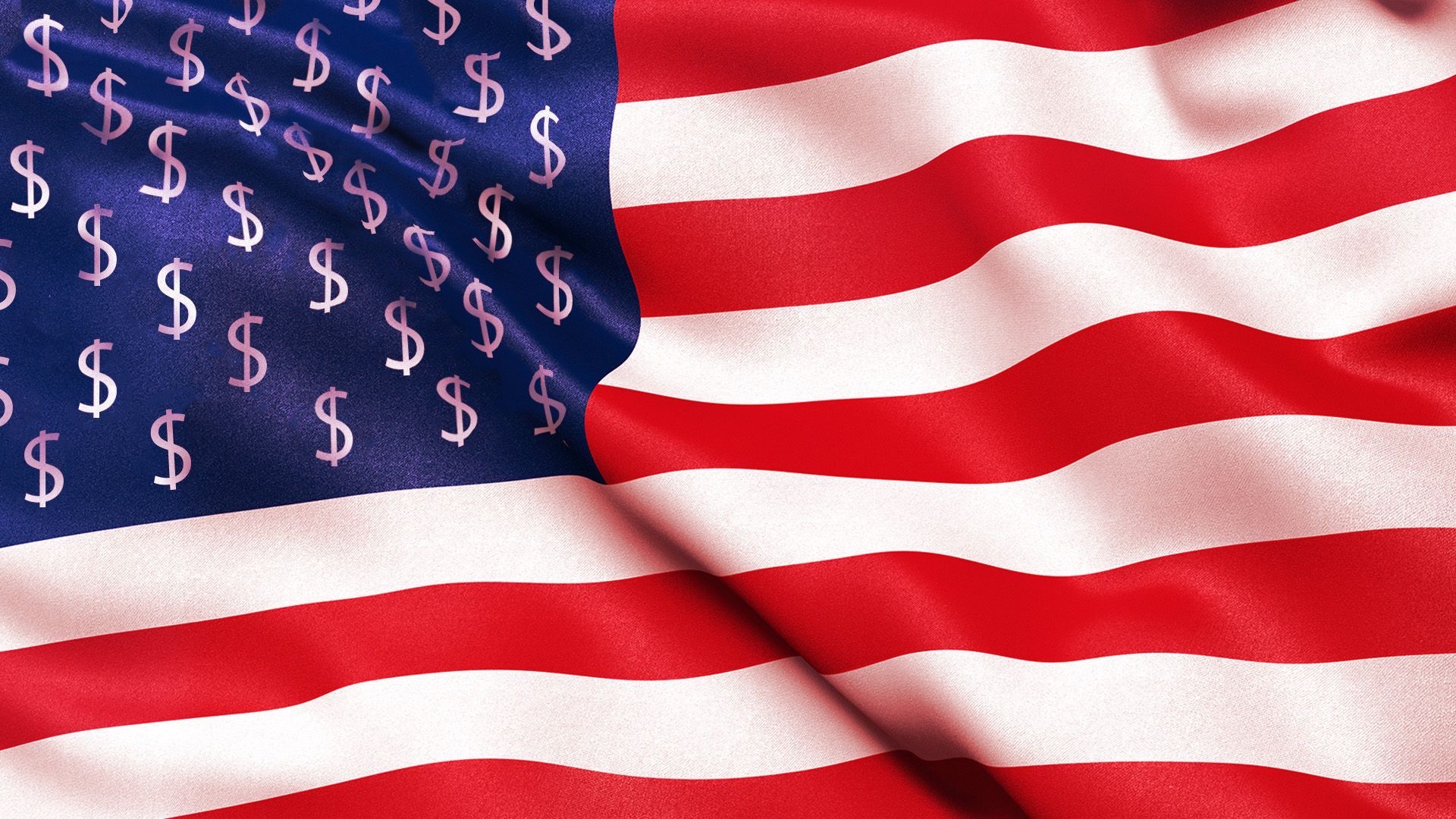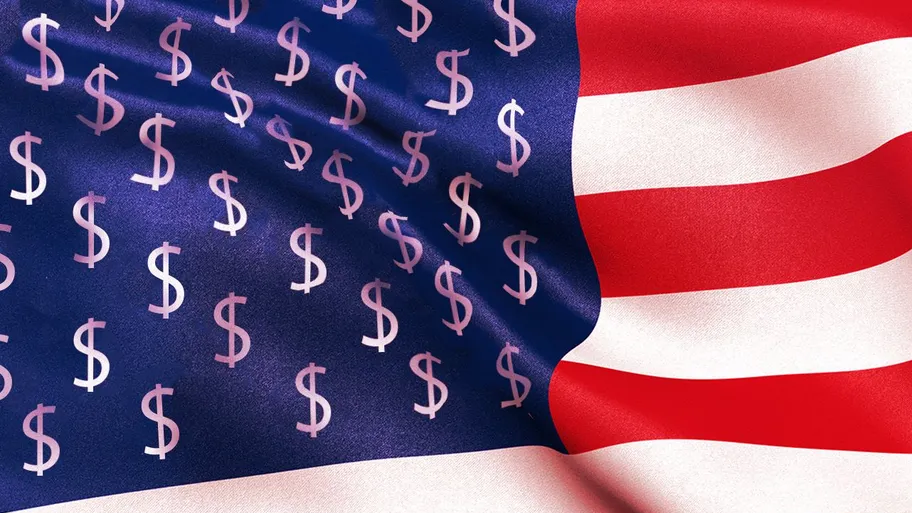 Illustration: Sarah Grillo/Axios
Illustration: Sarah Grillo/Axios
Presidents Day comes every third Monday in February: It’s a day many Americans enjoy off from work and cash in on sales.
The big picture: The way the holiday is celebrated has evolved throughout U.S. history, from a day of reverence for George Washington to a retail bonanza.
- The growing pains sparked congressional debates decades ago, but the advertising industry’s cash cow won out over political quarrels, institutionalizing the contemporary idea of Presidents Day.
- The modern Presidents Day weekend is often recognized as a time to shop for mattresses, appliances, electronics, and more. But the reason for the season dates back long before online shopping and BOGO deals.
- The intrigue: The placement or absence of an apostrophe in the day’s name further muddled the purpose of the holiday.
Here is a brief history of Presidents Day:
Is Presidents Day George Washington’s birthday? It’s complicated.
The day does honor the first president’s birthday, which falls on Feb. 22.
- So, no, it’s not on his actual birthday — in fact, it never is. But, yes, his birthday is the origin of the holiday.
Flashback: During his life and after Washington’s death, Americans informally celebrated his birthday, according to Mount Vernon’s history of the holiday.
- Washington himself seemingly wasn’t a partier on his birthday, according to his diary entries: In 1760, he installed a fence, and in 1788, he spent the day indoors as snow fell.
Zoom in: Some eight decades after Washington’s death, lawmakers formalized the unofficial birthday festivities honoring the Father of His Country, adding Feb. 22 to the short list of federal holidays, according to a Prologue article by historian C.L. Arbelbide in the National Archives.
- The popular bill, signed into law by President Rutherford B. Hayes, applied only to D.C. federal workers.
- In 1885, it was extended to all federal workers.
Why is it celebrated on a Monday?
Congress in 1968 passed the Uniform Monday Holiday Act (the legislation to thank for three-day weekends), which shifted observance of some government holidays — including Washington’s Birthday — to Mondays.
- With the implementation of the law in 1971, observance of Washington’s Birthday was booted to the third Monday in February.
- Lawmakers proposed the change as an opportunity for leisure and to address concerns about absenteeism, Arbelbide wrote — while others raised alarms about nongovernmental workers’ rights for the benefit of business.
- There was some discussion over renaming Washington’s Birthday to Presidents’ Day — but the idea, which triggered unease among Virginia lawmakers and others, was dropped.
With the holiday falling on the third Monday in February, it ensured it would never be celebrated on Washington’s actual birthday: The third Monday in February can’t fall any later than Feb. 21, according to the National Archives.
- While the law did not formally broaden the day to honor President Abraham Lincoln, who was born on Feb. 12, Washington began sharing the holiday spotlight.
- The sales scene erupted, as advertisers morphed the two presidents’ birthdays into “the sales sound bite” of “President’s Day,” according to Arbelbide.
- Some states chose to shirk the federal title of Washington’s birthday, opting instead for Presidents’ (or President’s, or Presidents) Day monikers.
States to this day vary in how they recognize Presidents Day — in their placement of an apostrophe, over which presidents they honor, or whether they recognize it at all.
Go deeper: Your long D.C. weekend: President’s Day, V-Day, Go-Go Festival
